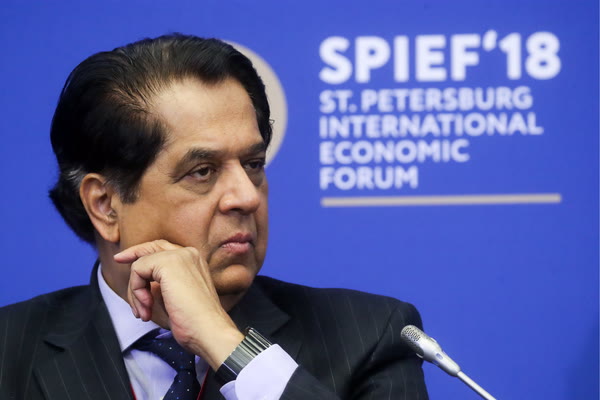
Banking and Finance in the Emerging Markets: Version 2.0
KEY CONCLUSIONS
The banking system of emerging economies is growing apace
“If we look at the banking business [of developing nations – Editor], the financial business, some 10–15 years ago it always was ‘catching up’: developing countries tried to catch up with the developed nations. There were very many barriers. Today, breakthroughs can be made,” – Kudnapur Vaman Kamath, President of the New Development Bank (NDB)
“The strategy we pursue is to be the leaders in Europe and Asia, as well as in the Middle East. … When we look at the distribution of accumulations and savings across the world, I often say that the savings are in the East but they are spent in the West. Savings in Asia are quite substantial. Today, we are managing EUR 200 billion in Asia, and we want to raise this figure,” – Yves Perrier, Group Chief Executive Officer of Amundi Asset Management SA
Traditional banks to remain on the market
“Banks will continue to provide banking services as a key type of services. Some of my colleagues in Russia believe that the traditional banking business will be converted into some kind of hi-tech companies or something like that. … And yet people will continue to come to bank offices. They need to be sure that the bank still exists, that their money is there. At the same time, they will not apply to banks for some simple services such as housing payments or money transfers, and this is where new technology is needed,” – Andrey Kostin, President of VTB Bank
“The traditional [banking – Editor] scheme will not disappear, it will simply become more economical, more expedient to use. Where interaction with individuals is needed, it will always remain. Therefore, let us speak about the combination of both elements: traditional banking and digital technologies,” – Kundapur Vaman Kamath
“Traditional banking will exist but we can see the emergence of new technologies, new ecosystems,” – Shereen Bhan, Managing Editor of CNBC TV18 and TV18 Broadcast Limited
Partially state-owned banks play an important role in emerging economies
“The role of the government in Russia’s banking sector is rather high, perhaps 55–60% of assets in Russian banks belong to the banks heavily controlled by the government. There are two important things here: they work in the same competitive environment and follow the same principles as their rivals. … In most countries, in China and India, partially state-owned banks play a very important role. They are very strong. I do not think that state participation is necessarily an evil, provided that all play by the same rules,” – Andrey Kostin
Technologies create new opportunities for the banking market
“There are huge opportunities and need for financial inclusion. If we want to provide better living standards for people, we have to ensure that everyone has access to loans, transfers and deposits. In this sphere, technologies are crucial. This is a huge challenge for emerging economies,” – Hans-Paul Buerkner, Chairman of the Boston Consulting Group
Russian economy attractive for leading foreign funds
“We want to see an efficient business, corporate governance and transparency. We are looking at these principal key things. Speaking about the Russian economy, we can see this positive fundamental basis. This gives certain guarantees to me as an investor,” – Mahmood H. Alkooheji, Chief Executive Officer of Bahrain Mumtalakat Holding Company
PROBLEMS
Competition from large tech companies
“Not just banks but each company should be asking itself how to remain relevant when a tech company comes between it and the consumer. This can happen in retail, in finance or even in ordinary consumer industries where some company, such as Apple, Google or Alibaba, takes this position. This should not be taken easily because each financial institution and other companies should think of themselves as of a tech company.… Many banks complain that these are unfair rules, as tech companies are not regulated to the same extent, and so on. We hope the regulator will retain financial institutions. And do not expect that regulators will come to your help,” – Hans-Paul Buerkner
SOLUTIONS
Curbing the government’s influence on the financial sector
“Issues of regulation are very important now. I think that, since the 2007 crisis, the financial market has been overregulated. All European countries, including Russia, look at the United States and see that the American banks are in a better position. This is an additional driving factor for the economy,” – Andrey Kostin
“An important lever for all emerging markets is their openness. … We have to reduce the government’s influence on various sectors, including the financial sector. … If you are unable to ensure creation of strong institutes, then we will not see the growth rates we would like to see. It is extremely important for our near future and for development of the banking and financial business,” – Hans-Paul Buerkner
Ensuring sustainability and stability in the banking sphere
“It is the issue of supremacy of law. It is necessary to ensure that this rule is complied with everywhere. Plus the sustainability of financial business. Many emerging markets suffer from volatility; they lack stability. Sustainability and stability should be the underlying principles of policy,” – Daniel Funes de Rioja, B20 Chair under the Argentinian G20 Presidency
“The role of the regulator is becoming more and more important. Regulators should react to the changes happening in the banking sector today. It is necessary to ensure stability and help prevent risks from being too great,” – Kundapur Vaman Kamath.
More detailed information is available on the website of the Roscongress Foundation information and analytical system.








